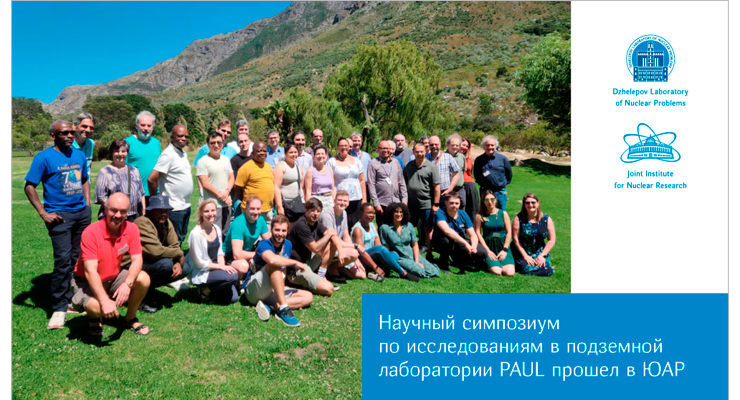Scientific symposium on research in PAUL underground laboratory took place in South Africa
News, 31 January 2024
From 14 to 18 January 2024, in the Republic of South Africa, in Du Kloof Lodge (Western Cape Province), a scientific symposium on the establishment of an underground low-background laboratory in the Huguenot Tunnel and future research topics was held. The PAUL (Paarl Africa Underground Laboratory) in the Du Toitskloof Mountains will be the first underground laboratory of this class in Africa and the second in the Southern Hemisphere. Staff members of the Department of Nuclear Spectroscopy and Radiochemistry at DLNP at JINR Daniya Zinatulina and Ayagoz Baimukhanova and an employee from the DLNP JINR Sector of Molecular Genetics of Cell Mikhail Zarubin participated in the scientific symposium held in South Africa.
The event was timed to coincide with the establishment of the PAUL (Paarl Africa Underground Laboratory) in the Huguenot Tunnel. The project involves the installation of a physics laboratory under the Du Toitskloof Mountains (1300 m) in the middle of an existing 3.9 kilometre long auxiliary tunnel that will allow achieving a rock shielding material thickness of about 800 metres.
The laboratory will become the first specialised deep underground low-background laboratory in Africa and only the second in the Southern Hemisphere. The estimated time for establishing the 600 square metre laboratory is 5 years. The Modane (LSM) and Gran Sasso (LNGS) laboratories will be prototypes of the project. Laboratory employees will primarily focus on research in particle physics, astrophysics, nuclear physics, and interdisciplinary research in geology, geophysics, and biology. The Stellenbosch University (LNGS), the iThemba Laboratory for Accelerator Based Sciences, the University of the Western Cape, as well as a number of underground physics laboratories around the world will organize the scientific centre. During the meeting, symposium participants discussed the implementation of the laboratory project, experimental work, advanced research topics and opportunities for cooperation.
